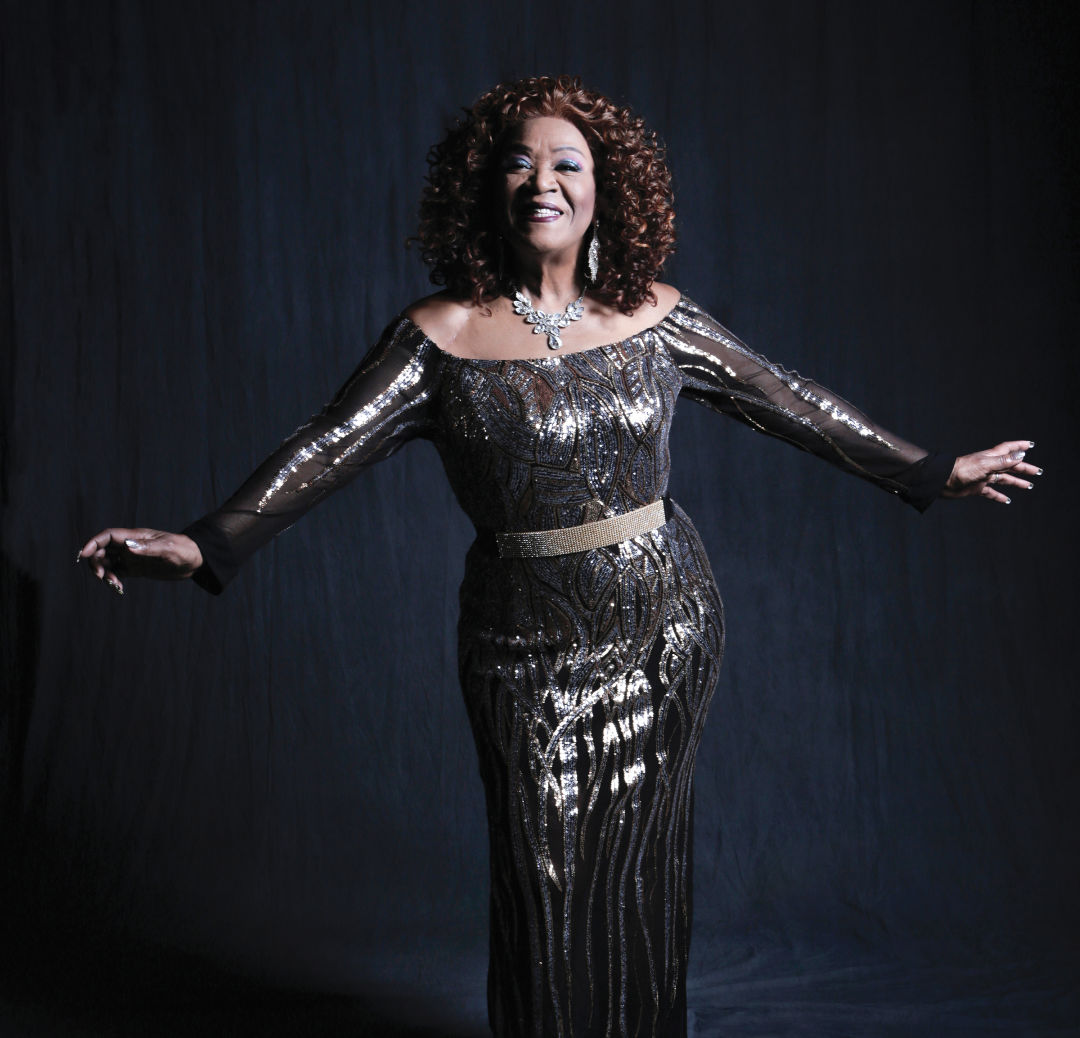The Slow and Steady Burn of Singer Trudy Lynn's Career in the Blues

Image: Jeff Fasano
TO PUT IT MILDLY, TRUDY LYNN HAS LIVED A LIFE.
Maybe that’s why even in the thick of the coronavirus crisis, the 72-year-old singer—whose vocals can be juke-joint raucous or bedroom sultry, depending on the mood she wants to create—was upbeat. She was praying a lot, while working up some new songs she hoped to record once it was safe to go back into the studio. The festival appearances in Spain and Tennessee that she’d had to cancel, even the tour of Portugal, seemed like small potatoes compared to peace of mind.
“It’s better to cancel,” she says, “than to be canceled completely out of here.”
Lynn is used to rolling with things. That’s why while many of her peers have slowed down, retired, or passed away, Lynn is still going strong. Living Blues magazine featured her on the cover of its “Women of the Blues II” issue last summer, dependably dressed to the nines in a skintight iridescent suit and luxuriantly coiffed hair. Her label boss and musical partner since 2013, Steve Krase, is still awestruck by her. “She just goes for the throat," the harmonica player says. "A lot of times I’ll be onstage with her, and I’ll actually catch myself looking at her, I’m so mesmerized about what she’s doing.”
Lynn was raised in the heart of Houston’s blues tradition. Born Lee Audrey Nelms, Lynn came of age in the late ’50s in her native Fifth Ward, already a blues and R&B hotbed by then. Duke and Peacock—the most successful black-owned record labels before Motown came along—were located mere blocks from her house. Lynn was intent on becoming a singer from an early age, singing at the Fifth Ward Church of Christ every Sunday and performing on her family’s front porch every night with her father, a distant cousin of blues legend Lightnin’ Hopkins, who played harmonica and tap-danced. Her favorite number? LaVern Baker’s “Tweedlee Dee.”
While her father worked assorted manual-labor jobs and her mother ran a hair salon around the corner, Lynn would sneak down a “cut-through” to Club Matinee, known as “the Cotton Club of the South,” to watch through the fence as stars like Big Mama Thornton and Jackie Wilson came and went. By the time she got to Wheatley High School, she and her friends had started their own vocal group, the Chromatics, modeled on the Supremes. But the teenage Lynn soaked up music of all kinds. She sang gospel at church and was influenced by soul, too. “I remember when Elvis Presley did ‘Blue Suede Shoes’ and ‘Jailhouse Rock’—I started thinking a little bit different,” she recalls now.
At 17 she was at Walter’s Lounge, a neighborhood juke joint, one night when a young Albert Collins called her onstage. The guitarist known as “Iceman,” a friend of Lynn’s mother, asked what songs the high school senior knew. She chose Barrett Strong’s early Motown hit “Money.” She killed it.
“I automatically thought I was a star,” Lynn recalls. “I just felt so good. I got a table full of cokes, because I wasn’t drinking back in them days. Everybody was sending me cokes.”
It was enough to get her hooked. After high school Lynn spent time with her aunt in Lufkin, where she had her first professional gig and acquired her stage name. Within a year she’d scored a spot with saxophonist Leo Baxter’s orchestra, singing at military bases around Texas before joining the Rhythmaires, a big band led by Duke/Peacock session guitarist Clarence Green. Soon she was performing constantly, pausing only to marry Ozell Roberts, a bass player in another popular Houston big band, when she was just 20. Working five or six nights a week in local clubs, Lynn easily tackled the group’s diverse repertoire of jazz, blues, and soul.
Lynn eventually outgrew Green’s band, and she worked to balance being Roberts’s wife and a mother to the couple’s three children while pursuing a solo career. She plugged away in Houston, and even opened for Ike and Tina Turner, but fame eluded her.
By the late ’70s Lynn, now divorced, had steady work at Third Ward joints like Club LaVeek on Blodgett and nightclub impresario Ray Barnett’s Cinder Club—whose hydraulic stage in the center of the room rose four feet in the air—but only recorded sporadic singles such as 1973’s “Long Live the Blues.” She supplemented her income doing hair at the salon she inherited from her mom, and she wasn’t much of a name unless you were in the clubs every night.
It took another decade but word gradually got around, and guitarist Gary B.B. Coleman—a talent scout for Atlanta’s Ichiban Records— showed up in Houston. Within a few years of that meeting Lynn was in Atlanta recording with Ichiban. She made several albums for the label, starting with 1989’s Trudy Sings the Blues. Ichiban also plugged her into the lucrative European festival circuit, where she remains a top draw. By 1999’s U Don’t Know What Time It Is, JazzTimes magazine hailed Lynn as the “Divine Diva of Blues and Soul.” Her work in blues clubs, by turns gutsy, funny, and gripping, was finally translating to true recognition.
Less than a year later though Lynn decided to move back home—“so tired of that old red dirt up there,” she laughs—where she swiftly re-established herself as a pillar of the local scene. Eventually she linked up with Krase’s label, Connor Ray Music. Their first collaboration, 2013's Royal Oaks Blues Cafe, spent two weeks topping Billboard’s Blues Albums.
Lynn soaked up that response, enjoying the attention just staying in the game was finally bringing to her talents. “Some people look at Trudy, and they would never understand that she’s about more than just being a blues singer who can evoke the live vitality of a juke joint,” says Roger Wood, author of the 2003 tome Down in Houston. “She understands humanity.”
That's the secret to her work. Her 13 albums (to date) all pull from the stuff of life that makes up the blues: loss and heartbreak, but also succor and strength. It’s helped Lynn weather the hardest points of her life, including the end of her marriage and the death of her youngest son three years ago. “It’s just life. Everybody gets the blues,” she says. “I don’t let nothing get me down. If it’s something that’s negative or derogatory for me, I’m the type I don’t put it in my head; I put it under my foot, and I stand on it.”
Come to think of it, conversing with Lynn, who never remarried and is now a grandmother four times over, is a lot like listening to her music—a plethora of homespun wisdom punctuated by a hilarious one-liner or two.
“The more of that shit I stand on,” she puts it, “the higher I rise.”




